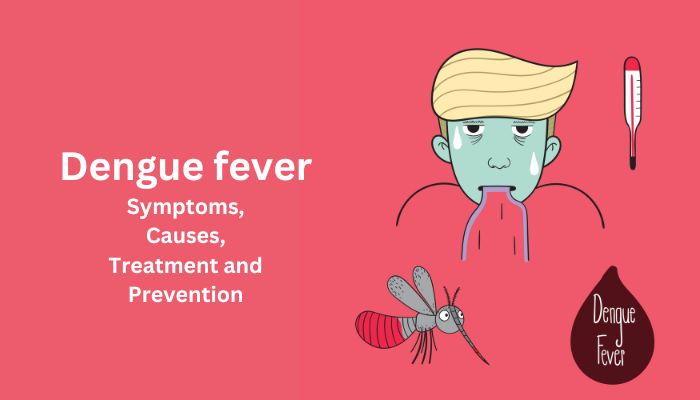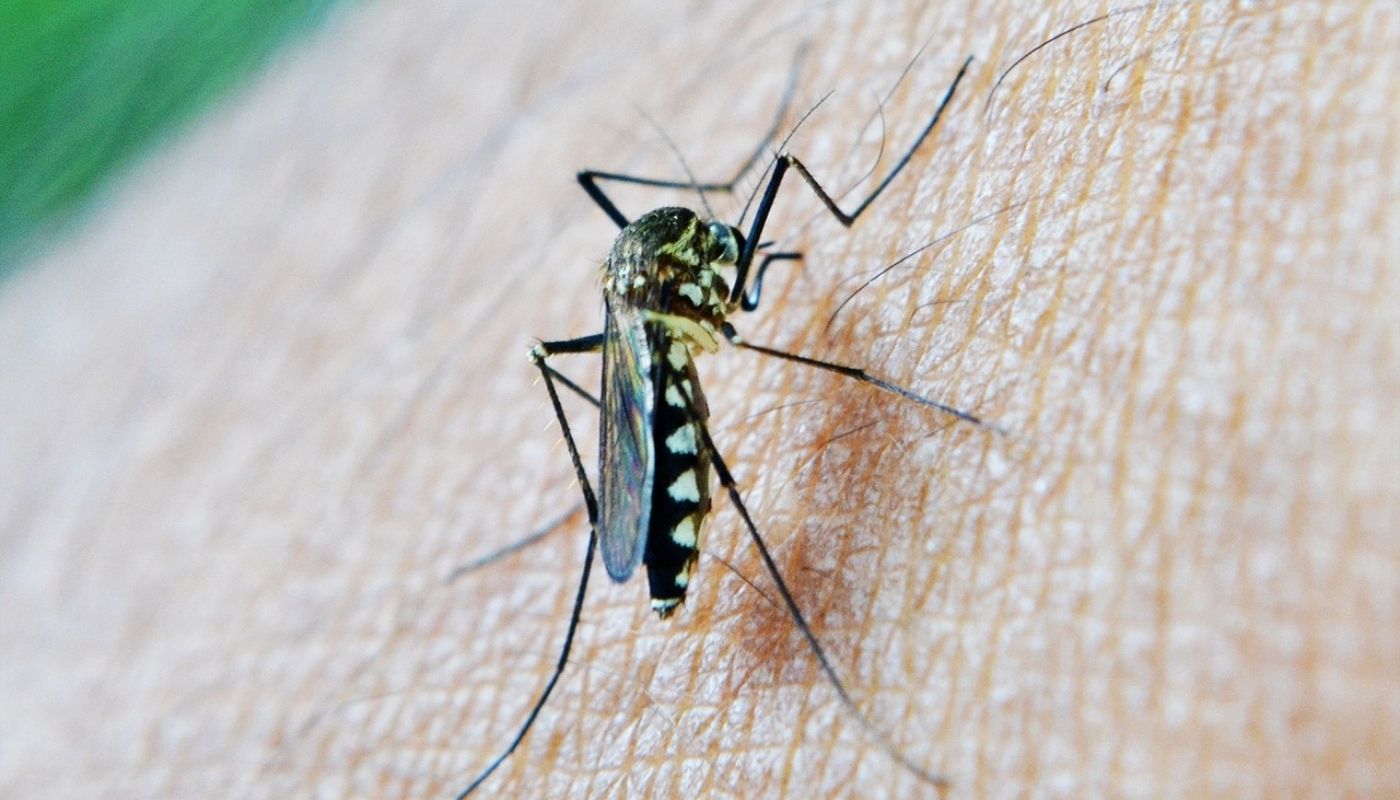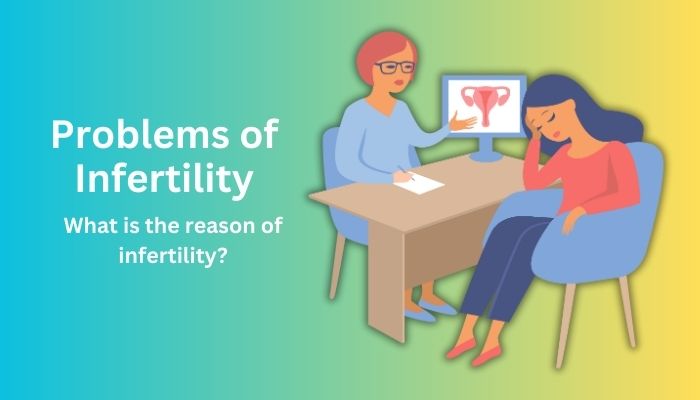Image:- Image by Piyapong Saydaung from Pixabay
Dengue fever is a serious and rapidly spreading disease caused by the dengue virus, transmitted through the bite of infected mosquitoes. The virus is transmitted by the bite of the Aedes aegypti mosquito. Usually the symptoms of the flu are similar to those of the flu. But it can be dangerous if the fever turns into a fatal hemorrhagic fever. Mosquitoes carrying this virus are usually found in tropical and subtropical regions. The virus has four different but closely related seroprevalences (DEN-1, DEN-2, DEN-3, and DEN-4). It is part of the Flaviviridae family. The virus enters our bloodstream through the bite of an infected mosquito. In this blog post, we will learn in detail about the symptoms, prevention, and treatment of dengue.
Dengue fever
The primary cause of dengue fever is a virus.
The main cause of dengue fever is the dengue virus, which is part of the flavivirus family. When a mosquito bites an infected person, it becomes infected with the virus. When the same mosquito then bites a healthy person, that person also becomes infected with the virus.
When a mosquito becomes infected with dengue, it can spread the virus for the rest of its life.
The contribution of mosquitoes
The main mosquitoes that spread dengue are Aedes aegypti and Aedes albopictus. These mosquitoes usually bite during the day, especially in the morning and evening. They require clean and stagnant water to breed, such as:
- Open water containers: buckets, flower pots, tyres, etc.
- Water tanks: if they are not covered properly.
- Plates under flower pots: where water can accumulate.
- Coolers: which are not cleaned regularly.
Environmental factors
Weather and environment also play a crucial role in the spread of dengue:
- Monsoon Season: The likelihood of mosquito breeding increases in water collected after rainfall.
- Tropical Climate: Warm and humid weather is ideal for mosquitoes.
Mother-to-Child Transmission
Dengue infection in pregnant women can be risky not only for the mother but also for the baby in the womb. If the mother contracts dengue during pregnancy, the virus can reach the baby through the placenta. The placenta is the structure that exchanges nutrients and oxygen between the pregnant woman and her fetus.
In some cases, if the mother contracts dengue at the time of delivery, the baby may contract the virus immediately after birth. This infection can be serious for the baby, as newborns have a weak immune system and are not able to handle the effects of the dengue virus.
Maternal infection can cause a variety of problems in babies born, such as low birth weight, premature birth, and symptoms of dengue in the baby such as fever, rash, and bleeding problems. In some severe cases, this infection can also prove to be life-threatening for the newborn.
If a pregnant woman contracts dengue infection, she should seek immediate medical help. Regular check-ups and care of the pregnant woman and the baby by a doctor are necessary to reduce the potential risks of infection.
Symptoms of Dengue: Identify and Be Alert
What are the Main symptoms of dengue?
Symptoms of dengue usually appear 4 to 10 days after a mosquito bite. They include:
- Sudden high fever, which can be as high as 104°F (40°C).
- Pain in the front of the head is common.
- Pain when moving or applying pressure to the eyes.
- Severe body aches, also known as “breakbone fever.”
- Red spots or rashes may appear on the skin 2-5 days after the fever begins.
- Feeling extremely tired and weak.
- Nausea and vomiting, loss of appetite.
- Nosebleeds, bleeding gums, or small red spots on the skin (petechiae).
Symptoms of severe dengue (dengue hemorrhagic fever) include:
In some cases, dengue can turn into a severe form, called dengue hemorrhagic fever or dengue shock syndrome. Its symptoms can be the following:
- Severe and persistent abdominal pain.
- Repeated vomiting.
- Difficulty breathing or rapid breathing.
- Skin turning blue or cold.
- Dark blue spots in the nose, mouth, gums or skin, which may indicate bleeding.
What to do?
If you or any of your family members experience any of the above symptoms, seek medical help immediately. Timely identification and treatment can prevent serious consequences of dengue.
Prevention of Dengue ( what we do to stop Dengue?)
Preventing dengue involves avoiding mosquito bites and eliminating mosquito breeding sites. Here are some key measures to help prevent dengue:
- Eliminate Standing Water: Regularly empty and clean containers that hold water, such as flowerpots, buckets, bird baths, and pet water bowls. Ensure that water does not collect in tires, gutters, or any other places around your home.
- Use Mosquito Repellents: Apply mosquito repellents on exposed skin and clothing. Use products that contain DEET, picaridin, or oil of lemon eucalyptus.
- Wear Protective Clothing: Wear long-sleeved shirts, long pants, socks, and shoes, especially during peak mosquito biting hours in the early morning and late afternoon.
- Use Mosquito Nets: Sleep under mosquito nets, especially if you are in an area with a high prevalence of dengue. Ensure windows and doors are fitted with screens to prevent mosquitoes from entering.
- Install Screens: Use window and door screens to keep mosquitoes out of your home. Repair any holes or tears in screens.
- Use Mosquito Traps: Employ mosquito traps or insecticides to reduce the mosquito population around your home.
- Maintain Clean Surroundings: Keep your surroundings clean and dispose of garbage properly. Ensure that there are no places where water can accumulate and stagnate.
- Community Efforts: Participate in community-wide efforts to control mosquito populations, such as fumigation and public awareness campaigns.
By following these preventive measures, you can significantly reduce the risk of dengue infection for yourself and your community.
What are the Treatments of Dengue fever?
There is no specific antiviral treatment for dengue. The main aim of its treatment is to manage the symptoms and prevent complications:
- Rest: Rest as much as possible.
- Increase fluid intake: Do not let the body get dehydrated. Drink as much water, coconut water as possible. This keeps you hydrated.
- Supportive care: Vomiting and diarrhea can also occur in dengue fever. To prevent these, it is important to maintain proper fluid balance.
- Consult a doctor: If the symptoms become severe, contact a doctor immediately. Hospitalization may be required.
Dengue can be a serious disease, but it can be prevented and managed with proper information and precautions. We can reduce the risk of dengue through protection from mosquitoes, hygiene and timely medical care.
It is important to understand the main reasons for the spread of dengue fever so that we can prevent it. Maintaining cleanliness, not allowing water to accumulate, and adopting mosquito prevention measures, such as using mosquito nets and mosquito repellent creams, are important steps to prevent dengue fever.
Only through caution and awareness can we protect ourselves and our family from this dangerous disease. Keep in mind that your active role is very important in preventing dengue. Stay healthy and be alert!






1 thought on “Dengue fever – symptoms, causes, treatment and prevention”